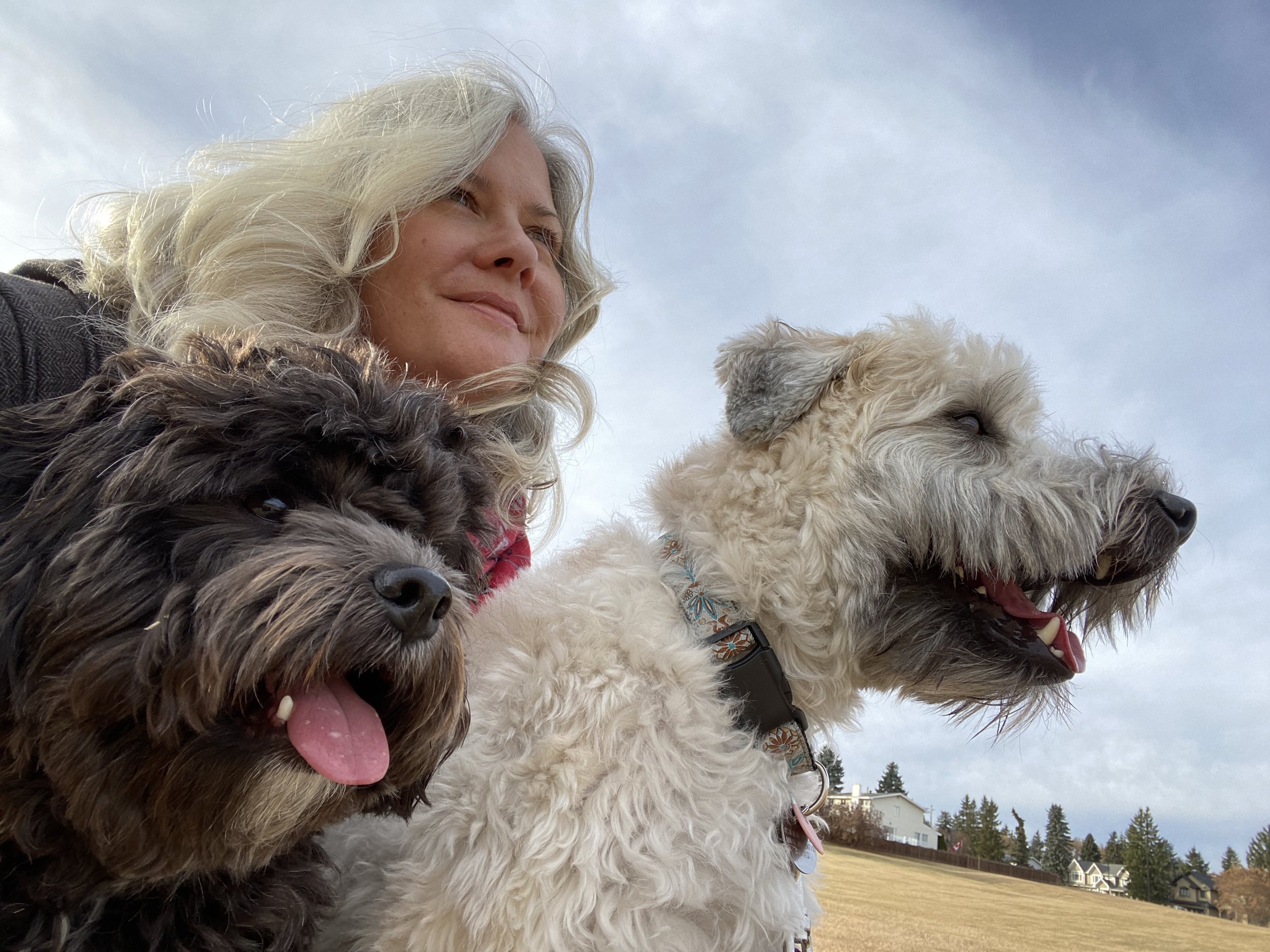
Media Lit With T.R.I.S.H.
A media literacy and storytelling initiative grounded in the power of storytelling to create collaborative and healthy learning spaces.
What Does T.R.I.S.H. Stand For?
Teaching, Restorying, Imagining, Sharing, Hope
Media Lit with T.R.I.S.H. is an education-focused initiative that partners with schools to explore how storytelling, critical media literacy, and identity intersect in the digital age. Started by Trish Jagger, she strives to offer workshops and resources that help students and educators unpack the impact of media in our world and develop strategies for school. Her focus is on creating space for critical dialogue, creative expression, and story-based learning—helping students become thoughtful, resilient, and media-savvy citizens.
What is Media Literacy?
Media literacy is the ability to access, analyze, evaluate, and create media in a variety of forms. In today’s image-saturated world, visual and media literacy are essential skills for understanding how information, identity, power, and culture are shaped.
What is a Media-Smart School?
A media-smart school is one where students are actively taught to analyze, evaluate, create, and respond to media messages across platforms and formats. These schools integrate media literacy across subject areas, empowering students to become critical thinkers, responsible digital citizens, and thoughtful creators of media. From social media algorithms to influencer culture and online misinformation, young people are constantly navigating a complex digital world. We work with educators to co-design curriculum-aligned experiences that meet learners where they are, encouraging reflection, imagination, and hope through the power of story.
“Today, young people are growing up in a society saturated with visuals... So, how are we teaching them to construct and deconstruct images? To think critically about those images in the same way that we teach them to think about the text that they read and write?”
Why a Media Literacy Framework?
A media literacy framework helps schools guide students in developing critical thinking skills about the media they consume and create. It ensures media education is not a one-off lesson, but an integrated, cross-curricular approach aligned with key educational outcomes.

Available Workshops
-
Digital Storytelling: Where Pedagogy Meets Poetry
A workshop for cultivating voice, media literacy, and creative reflection in the classroom.
In a world shaped by stories — from TikTok to textbooks — this hands-on, heart-centred workshop helps educators explore digital storytelling as a tool for transformative learning. Grounded in feminist and culturally responsive practices, participants will engage with personal narrative, media critique, and creative expression to foster student voice and agency.
Participants will gain:
A working knowledge of digital storytelling as critical literacy
Tools for integrating narrative and media analysis in the classroom
A draft of their own digital story or storyboard
Strategies to support student voice and vulnerability
Resources to scaffold storytelling projects across learning contexts
Ideal for: Educators (grades 7–post-secondary), curriculum designers, and education leaders.
Format: Available as a one-day intensive, a multi-session series, or customized PD.
-
Digital Wellbeing: Cultivating Healthy Media Habits
In many educational settings, technology is often approached through a lens of fear, focusing primarily on risks and limitations. This workshop invites educators to embrace a relational and strengths-based approach to technology use. By fostering critical thinking skills and nurturing healthy, respectful connections with digital tools, students and children can learn to navigate technology safely and responsibly. Participants will explore strategies to support young learners in developing balanced, informed relationships with technology that empower them as thoughtful and confident digital citizens.
Participants will gain:
Understanding key concepts of digital wellbeing, media literacy, and healthy relationships with technology.
Awareness of positive and negative aspects of media (social media, news, gaming).
The ability to recognize bias, misinformation, and manipulation in media.
Knowledge of how critical media literacy is to digital wellbeing.
Critical thinking skills to navigate online content.
Ideal for: Educators (all grades), parents, and anyone looking to build healthier media habits.
Format: Available as a multi-session series or customized PD.
-
Scroll, Click, Repeat: Gender, Power, and Identity in the Digital Lives of Youth
How are digital platforms shaping how young people see themselves—and each other?
This co-ed workshop invites educators, caregivers, and youth allies to examine the gendered narratives, power structures, and identity cues that shape young people’s online experiences. From TikTok trends and YouTube influencers to gaming forums and Instagram filters, youth are engaging with a digital ecosystem filled with both connection and contradiction.
Participants will explore:
How gender roles and expectations are (re)produced across social media, gaming, and influencer culture
The rise of online misogyny and the manosphere—and its impact on boys’ and girls’ beliefs and behaviours
How girls and gender-diverse youth are negotiating hypervisibility, beauty ideals, and digital performance
The emotional and social toll of “likes,” comparison culture, and online harassment
Stories of youth resistance, creativity, and agency through digital storytelling, activism, and community-building
This interactive session will include case studies, media examples, and tools to support critical conversations with young people about their digital lives. Drawing on feminist pedagogy and media literacy frameworks, this workshop offers pathways toward empathy, resilience, and digital wellbeing—for all youth.
This session can also be adapted for adult-oriented or intergenerational audiences.

Work with Trish to create a Media-Literacy Framework for your school or organization.




